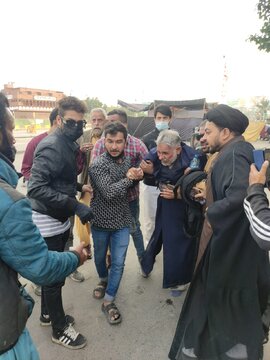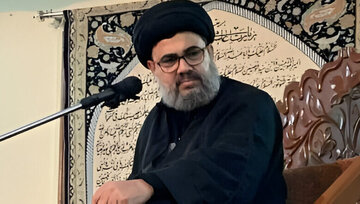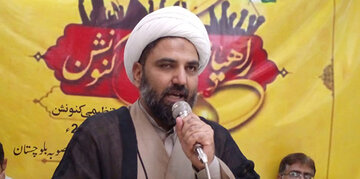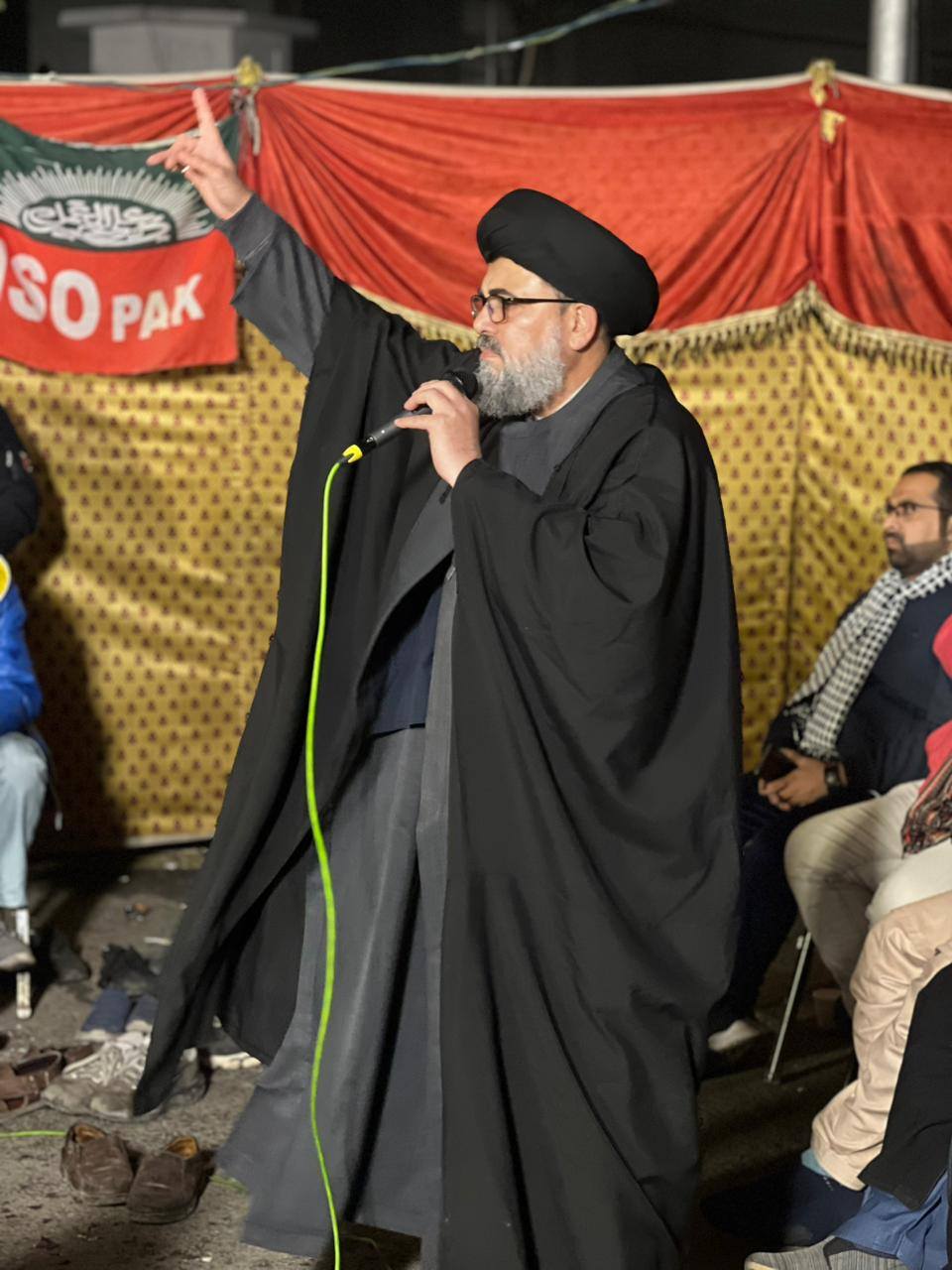AhlulBayt News Agency: The chief of Pakistan's Jamaat-e-Islami party stated: Imam Khomeini (God bless his soul), from the early days of the Revolution, declared the Zionist regime illegitimate and made support for Palestine a national and ideological policy.
Recently, in an exclusive interview with Sahab Urdu channel, Siraj ul Haq, the chief of Pakistan's Jamaat-e-Islami party, analyzed regional issues, particularly focusing on Iran’s role, the Axis of Resistance, and the betrayal of some Arab countries amid recent developments.
Siraj ul Haq, referring to the October 7 attack (al-Aqsa Storm operation) and its consequences, emphasized that this battle is between righthood and falsehood, and Palestinians had no choice but to resist.
The betrayal of Arab countries and their fear of Israel
Siraj ul Haq, in a critical tone, accused some Arab rulers of betraying Palestine. He noted that while the people of Arab countries continue to support the Palestinian cause, their rulers have remained silent out of fear of the U.S. and Israel, serving Western policies instead of supporting resistance.
Referring to the "Deal of the Century," he described these plans as attempts to force the Palestinian people into submission to Israel and said: "Some Arab countries, instead of confronting Israel, are seeking ways to compromise and normalize relations. This betrayal will be a stain of shame on their foreheads."
He stressed that Israel has only grown stronger because some Arab countries betrayed the cause of the Palestinian people, and if there had been genuine unity among Muslims, this regime would not have been able to commit massacres and occupation in the region.
Iran's role in supporting Palestinian resistance
Siraj ul Haq reiterated that Iran has stood by the Palestinian resistance even in the most difficult conditions. He acknowledged that Hamas leaders have personally spoken about Iran's military and technical support, which has not been limited to financial aid but also included training and equipment.
According to him, the Islamic Revolution in Iran was a turning point in changing regional policies, and Imam Khomeini (God bless his soul), from the early days of the Revolution, declared the Zionist regime illegitimate and made supporting Palestine a national and ideological policy.
The fear of Arabs towards Israel and the West
Siraj ul Haq believes that many Arab countries, out of fear of Western sanctions and economic pressures, have refrained from directly supporting Palestine. He said: "These Arab rulers who fear Israel today are the same ones who were once servants of colonialism. They are the same ones who, during past wars, not only achieved nothing but also strengthened the enemy through betrayal."
He also pointed out the biggest mistake of the Arab countries and said: "When the Arabs saw that Palestinian resistance was aligning with Iran, instead of supporting the resistance, they assisted in implementing the sinister policies of Israel and the U.S."
He emphasized that if Iran and Saudi Arabia fully unite, the balance of power in the region will shift, and the West will no longer be able to impose its policies.
Unity of the Resistance Axis and its impact on Israel
The chief of Pakistan's Jamaat-e-Islami party also highlighted the solidarity of the Resistance Axis and cited Lebanon as an example of standing firm against Israel. He described Hezbollah as a force that not only did not retreat from the fight but also changed the balance of power in the region through its active presence. He further mentioned Yemen's role in attacking U.S. and Israeli interests, calling it another example of strengthening the spirit of resistance.
The final solution for Palestine
Siraaj al-Haq stressed at the end that the future is bright, as the Palestinian resistance has not only remained unbroken but has also caused a crisis within Israel's internal structure. He called for genuine unity among Islamic countries and emphasized that if Iran, Saudi Arabia, Turkey, Syria, Lebanon, and other regional countries unite, Israel will ultimately have no choice but to withdraw from the Occupied Territories.






Your Comment